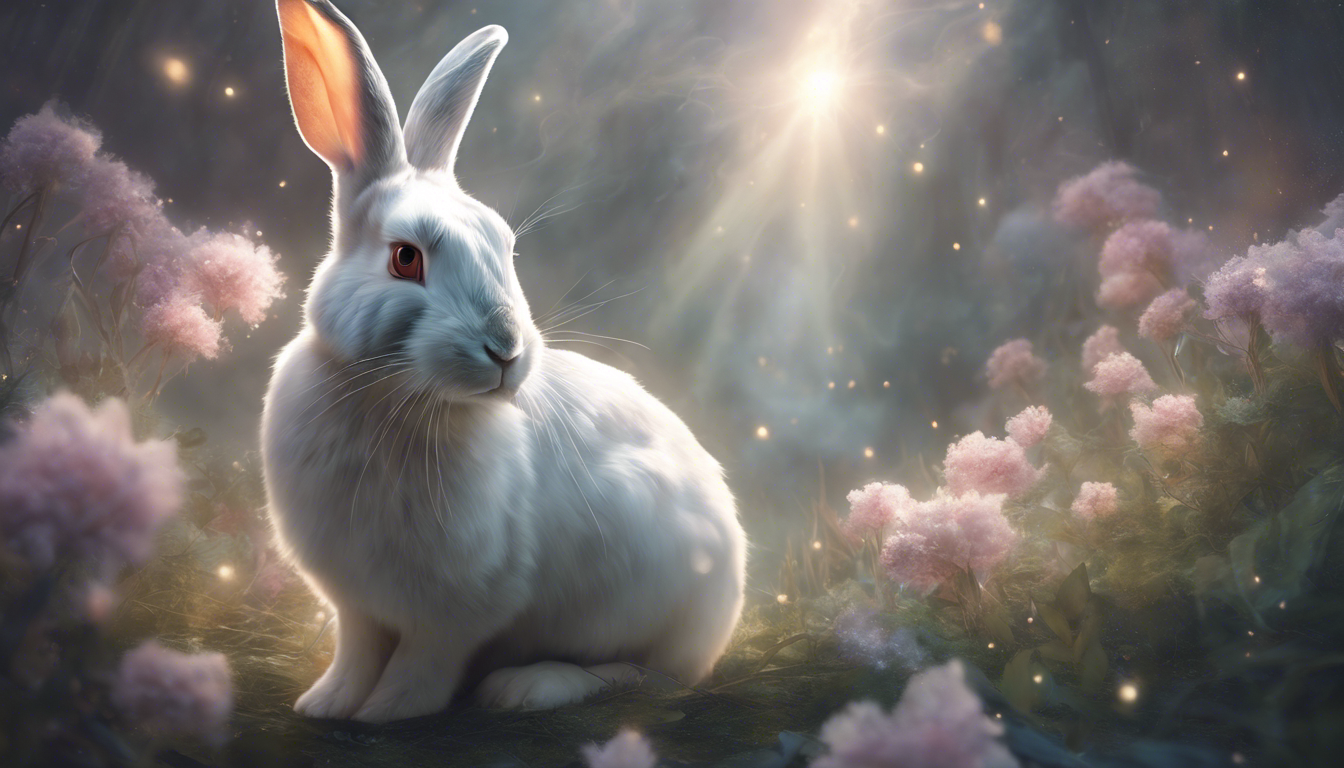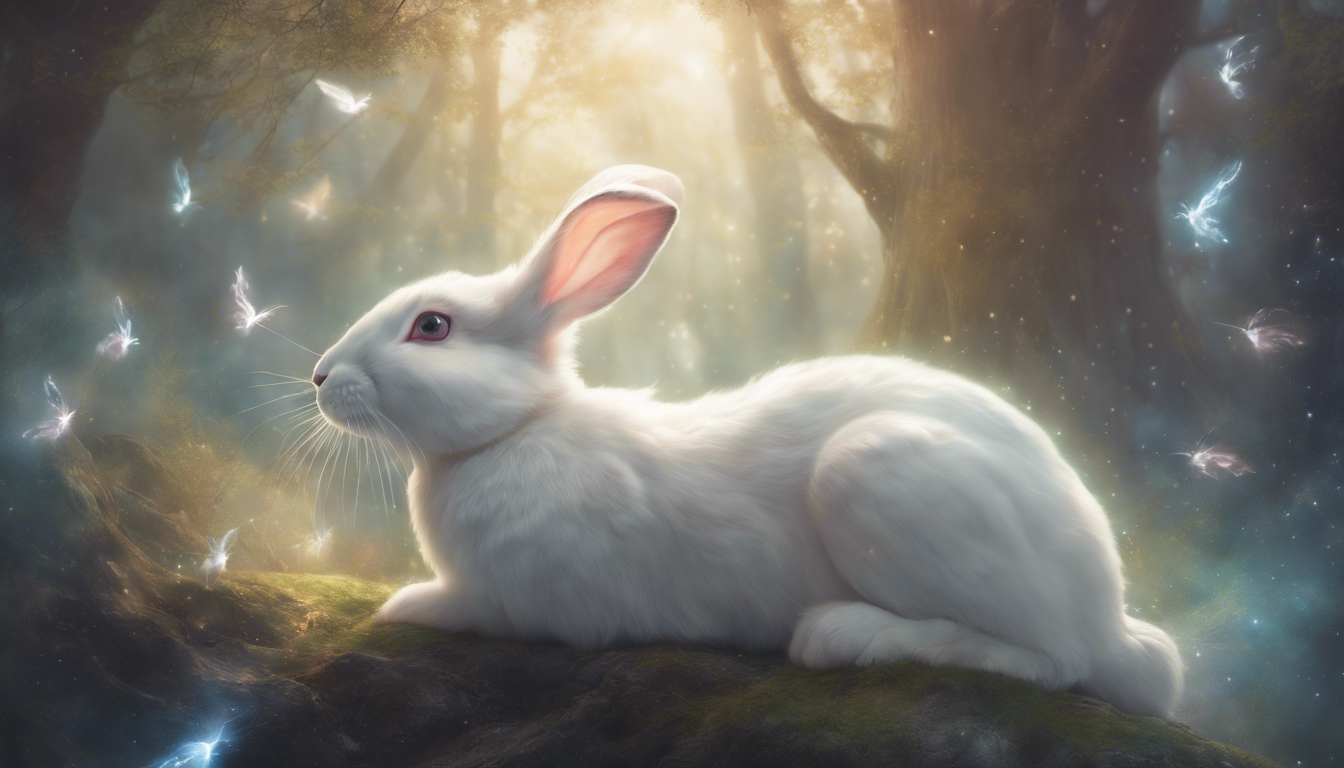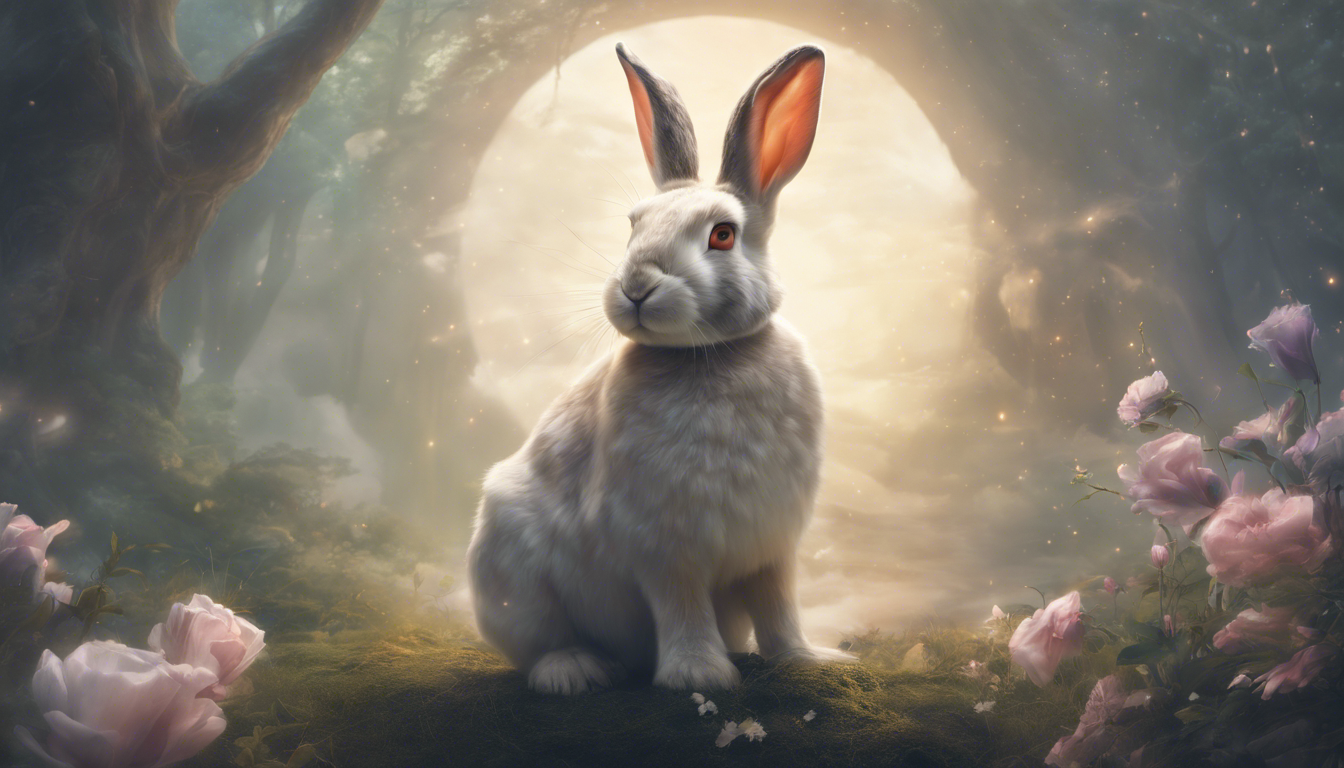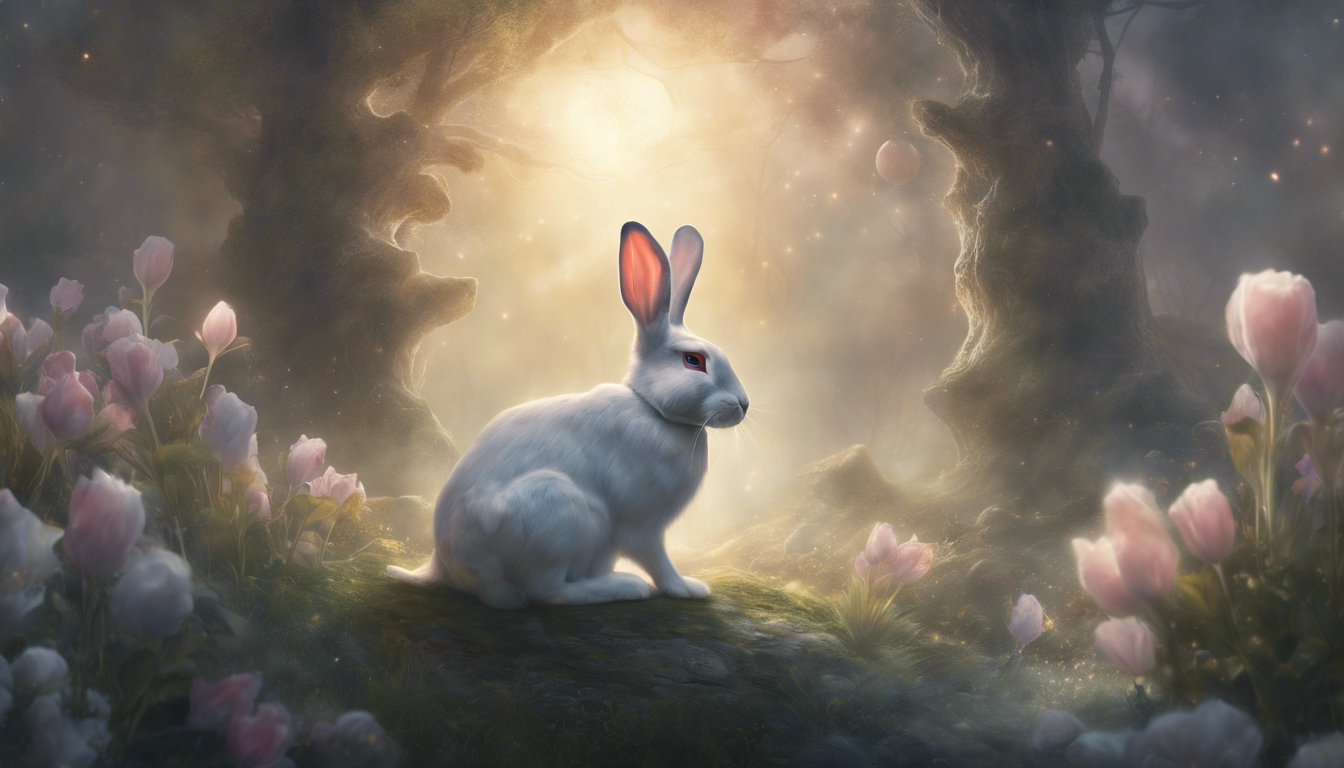The Symbolism of Rabbits in Spiritual Beliefs
The Rabbit: A Symbol of Fertility and New Beginnings
Rabbits have long been associated with fertility and new beginnings in various spiritual beliefs. In many cultures, rabbits are seen as symbols of abundance and prosperity. Their ability to reproduce quickly and their association with the changing seasons, particularly spring, make them powerful symbols of growth, renewal, and new life. In spiritual practices, rabbits are often invoked to enhance fertility, whether it be physical fertility or the fertility of ideas and creative projects.
The Rabbit as a Messenger of Good Luck
Another significant aspect of rabbits’ symbolism in spiritual beliefs is their association with good luck. In some traditions, it is believed that seeing a rabbit in certain circumstances can bring good fortune or indicate positive outcomes in various life situations. The rabbit’s reputation as a bringer of luck also comes from its ability to swiftly navigate through obstacles and challenges, symbolizing agility and quick thinking.
Rabbits as Guides in Spiritual Journey
Rabbits are often considered guides and companions in spiritual journeys. They are known for their keen senses and their ability to sense danger, making them reliable allies in navigating through the unknown. In various spiritual practices, rabbits are seen as protectors and guides on the spiritual path. They can assist in discovering hidden truths, uncovering one’s intuition and inner wisdom, and finding one’s unique purpose.
Rabbits as Symbols of Balance and Harmony
The gentle and calm nature of rabbits also lends them to represent balance and harmony in spiritual beliefs. They are known for their graceful movements and peaceful demeanor, which serves as a reminder to maintain inner peace and tranquility amidst chaos. Rabbits symbolize the need to find equilibrium in one’s life, to create a harmonious connection between mind, body, and spirit.
Rabbits in Mythology and Folklore
The symbolism of rabbits can also be found in mythology and folklore around the world. In some Native American and Celtic folklore, rabbits are associated with the moon and are seen as mystical creatures with otherworldly powers. In Chinese culture, the rabbit is one of the twelve animals of the zodiac and is believed to bring kindness and luck. These legends and stories further contribute to the sacred and mysterious reputation of rabbits in spiritual beliefs.
From their representation of fertility and new beginnings to their role as guides and bringers of luck, rabbits hold significant symbolism in spiritual beliefs. They embody qualities such as abundance, agility, protection, and balance that can inspire and guide individuals on their spiritual journeys. Whether as symbols in rituals, guides in meditation, or symbols of good fortune, rabbits continue to be cherished and respected as important spiritual allies in various traditions around the world.
Historical and Cultural Significance

The Importance of Historical and Cultural Significance
History and culture are essential aspects of a society’s identity. They shape who we are, where we come from, and what we believe. Understanding the historical and cultural significance of a particular place, event, or artifact allows us to connect with our past, learn from it, and preserve our heritage for future generations.
Preserving Our Heritage
Preserving our heritage is crucial to maintaining a sense of belonging and identity. Historical sites, artifacts, and traditions offer a window into our ancestors’ world, enabling us to grasp their struggles, achievements, and values. Without this connection to our past, we risk losing a part of our collective memory.
By preserving historical sites and artifacts, we also create valuable educational resources. These remnants of the past serve as tangible evidence of the events that have shaped our society and provide a deeper understanding of our history.
Cultural Exchange and Understanding
Exploring the historical and cultural significance of different regions and civilizations fosters cultural exchange and understanding. By learning about other cultures, we gain new perspectives and insights while deepening our appreciation for human diversity.
Cultural exchange allows us to break down barriers and promote peace and harmony among different communities. Through shared experiences and mutual respect, we can bridge gaps and build a more inclusive and compassionate society.
Reviving and Celebrating Traditions
Understanding the historical and cultural significance of traditions gives us a reference point for appreciating and reviving them. Many ancient traditions have been passed down through generations, carrying with them rich stories and customs that contribute to our cultural fabric.
Reviving and celebrating these traditions not only keeps them alive but also enhances our connection to our roots. Whether it is through festivals, rituals, or traditional arts, embracing our heritage allows us to embrace a part of ourselves.
The historical and cultural significance of a society’s heritage cannot be overstated. It shapes our identity, provides valuable educational resources, fosters cultural exchange and understanding, and allows us to revive and celebrate our traditions. By recognizing and preserving our history and culture, we ensure a bright future for generations to come.
Rabbit as a Symbol of Fertility and Rebirth

The rabbit has long been associated with fertility and rebirth in various cultures around the world. Its ability to reproduce quickly and abundantly has made it a powerful symbol of new beginnings and the cycle of life. In this article, we will explore the significance of the rabbit as a symbol of fertility and rebirth, and how it has been embraced in different societies.
The Rabbit in Mythology
In many ancient mythologies, the rabbit was revered as a sacred animal associated with fertility and rebirth. In Greek mythology, the goddess Aphrodite was often depicted with a rabbit by her side, symbolizing her role as the goddess of love and fertility. Similarly, in Celtic mythology, the rabbit was believed to be connected to the cycle of life and was associated with the goddess Eostre, the bringer of spring and fertility.
The Rabbit in Folklore
The rabbit’s association with fertility and rebirth can also be found in various folklores. In Chinese folklore, the rabbit is depicted as a lunar creature, living on the moon and symbolizing immortality and rejuvenation. The story of the “Jade Rabbit” is often told during the Mid-Autumn Festival, where it is believed to mix the elixir of life.
Rabbit Symbolism in Art and Literature
Throughout history, the rabbit has been a popular subject in art and literature, often used as a symbol to convey ideas of fertility and rebirth. In paintings, the rabbit is frequently depicted in lush meadows or spring landscapes, emphasizing its association with the renewal of life. In literature, the rabbit has been featured in numerous tales and stories that explore themes of transformation and new beginnings.
The Rabbit as a Totem Animal
In some Native American cultures, the rabbit serves as a totem animal, representing the qualities of fertility, creativity, and abundance. People who identify with the rabbit as their totem are believed to possess these characteristics and may seek guidance from the rabbit spirit in times of change or when embarking on new ventures.
The Rabbit as a Symbol of Fertility in Modern Culture
Even in modern culture, the rabbit continues to be associated with fertility and rebirth. The iconic image of the Easter Bunny, delivering eggs that symbolize new life, is a prime example of how the rabbit’s symbolism has been integrated into popular celebrations. Additionally, the rabbit has become a popular motif in baby showers and nurseries, symbolizing the arrival of a new life.
Overall, the rabbit’s association with fertility and rebirth transcends time and culture. Its ability to multiply quickly and its association with the changing of seasons has made it a powerful symbol of new beginnings. Whether as a mythical creature, a totem animal, or a popular image in art and literature, the rabbit serves as a reminder of the ever-renewing cycle of life.
Rabbit Symbolism in Different Spiritual Traditions

Rabbits are small, furry creatures that have captured the imagination of humans for centuries. In addition to their adorable appearance, rabbits hold significant symbolism in various spiritual traditions around the world. Let’s explore the rabbit’s symbolism in different spiritual beliefs.
1. Native American Traditions
In Native American cultures, rabbits are often seen as symbols of abundance, fertility, and agility. The rabbit’s ability to multiply quickly is associated with the abundance of nature and the Earth’s ability to sustain life. Additionally, the rabbits’ ability to swiftly maneuver through their surroundings represents agility and adaptability.
2. Celtic Traditions
Celtic traditions often associate rabbits with the moon and lunar cycles. They believed that rabbits had a deep connection to the spiritual realm and the cycles of life and death. The rabbit’s burrow, hidden underground, symbolizes the entrance to the Otherworld, a realm of magic and spirituality.
3. Chinese Traditions
In Chinese astrology, the rabbit is one of the twelve zodiac animals and represents creativity, kindness, and compassion. People born in the Year of the Rabbit are believed to possess these traits. Additionally, in Chinese folklore, the Moon Goddess Chang’e is often depicted with a rabbit as her companion, further linking rabbits to the lunar energies.
4. Buddhist Traditions
In Buddhism, the rabbit holds symbolism related to the path towards enlightenment. The Jataka tales, a collection of stories about the previous lives of Gautama Buddha, often depict rabbits as selfless beings. One well-known story tells of a rabbit who offered its body to save a starving traveler, demonstrating compassion and sacrifice.
5. European Folklore
In various European folklore, rabbits are associated with fertility, luck, and the coming of spring. The Easter Bunny, for example, is a beloved figure who brings eggs and gifts to children during the Christian holiday of Easter. This tradition has roots in pre-Christian celebrations of the fertility goddess Eostre and the symbolism of new life.
The symbolism of rabbits in spiritual traditions varies, but common themes include fertility, abundance, agility, lunar energies, and compassion. The rabbit’s role as a symbol in these beliefs highlights the interconnectedness of nature, spirituality, and the human experience. Whether seen as a messenger of abundance or a guide to the spiritual realm, the rabbit continues to capture our imagination and inspire us to explore the deeper meaning behind its symbolism.


Article written by Dera
Greetings, I am Dera, a 35-year-old individual with a deep passion for spirituality. Through my website, I aim to share my insights and knowledge to help others on their spiritual journey. Join me on the path to inner peace and enlightenment.